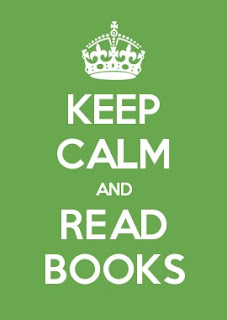This is the sort of thing I love, but that no doubt is not especially interesting to any one else. As no one reads this blog however, I can in good conscience "practice" writing by mentioning it anyway.
Twice now it has happened that two totally different books I am reading have odd links with each other.
 The first was an English crime I recently read, called "Gone Away" by Hazel Holt. In that book, the sleuth, Mrs. Malory, a literary critic, refers to a book called "Salem Chapel" by Mrs. Olifant. A book I also happen to be reading at present, if somewhat slowly. A book I would never have known about had it not been what I affectionately call a greenback Virago paperback (which I collect). Enough of a coincidence to be interesting I thought.
The first was an English crime I recently read, called "Gone Away" by Hazel Holt. In that book, the sleuth, Mrs. Malory, a literary critic, refers to a book called "Salem Chapel" by Mrs. Olifant. A book I also happen to be reading at present, if somewhat slowly. A book I would never have known about had it not been what I affectionately call a greenback Virago paperback (which I collect). Enough of a coincidence to be interesting I thought.
Secondly, I finished A piece of justice by Jill Paton Walsh today. Another English crime (yes, I do read quite a few of those. At least as good as yoga). In that book, a comment was made about John Maynard Keynes as Bursar for his Cambridge college. I did not understand the reference (and was not curious enough to find out). Nevertheless, I am also reading a Norwegian book called Ideologienes århundre (Ideologies century) by Bent Hagtvet, a Norwegian academic. Just today I started reading the chapter on Keynes, and voilá, the explanation of the significance of Keynes as bursar for his Cambridge colleage, Kings, was provided at no extra charge. Which is why simply reading broadly is educational perhaps!
Small things, but nevertheless does add to the enjoyment of reading.
Twice now it has happened that two totally different books I am reading have odd links with each other.
 The first was an English crime I recently read, called "Gone Away" by Hazel Holt. In that book, the sleuth, Mrs. Malory, a literary critic, refers to a book called "Salem Chapel" by Mrs. Olifant. A book I also happen to be reading at present, if somewhat slowly. A book I would never have known about had it not been what I affectionately call a greenback Virago paperback (which I collect). Enough of a coincidence to be interesting I thought.
The first was an English crime I recently read, called "Gone Away" by Hazel Holt. In that book, the sleuth, Mrs. Malory, a literary critic, refers to a book called "Salem Chapel" by Mrs. Olifant. A book I also happen to be reading at present, if somewhat slowly. A book I would never have known about had it not been what I affectionately call a greenback Virago paperback (which I collect). Enough of a coincidence to be interesting I thought. Secondly, I finished A piece of justice by Jill Paton Walsh today. Another English crime (yes, I do read quite a few of those. At least as good as yoga). In that book, a comment was made about John Maynard Keynes as Bursar for his Cambridge college. I did not understand the reference (and was not curious enough to find out). Nevertheless, I am also reading a Norwegian book called Ideologienes århundre (Ideologies century) by Bent Hagtvet, a Norwegian academic. Just today I started reading the chapter on Keynes, and voilá, the explanation of the significance of Keynes as bursar for his Cambridge colleage, Kings, was provided at no extra charge. Which is why simply reading broadly is educational perhaps!
Small things, but nevertheless does add to the enjoyment of reading.
